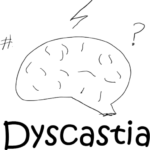Watch episode 16 on YouTube
David Morkunas

David Morkunas is primary school teacher from Melbourne and currently works at Brandon Park Primary School, where his role is to help support whole school improvement in maths. David first made a name for himself by speaking about the importance of Daily Review at conferences, including Sharing Best Practice and ResearchED. David is a fierce advocate for evidence-based teaching and learning, with a particular interest in how knowledge is transferred to long-term memory.
Bill first met David as a graduate teacher while running the Bentleigh West Primary School Study Tour for South Australian educators, and he and David have remained in touch since.
Show notes
In this episode, Michael and Bill talk with David about something very close to all our hearts – review. Anybody working in the explicit (direct) instruction and evidence-informed instruction space has become familiar with the importance of deliberately planned and scheduled review of previously learned material. For educators new to review, it’s a case of “Where have you been all my life?”
Once maligned as non-progressive ‘rote learning’ or ‘drill and kill’ in teaching circles, review has come back to classrooms with a vengeance, and teachers are seeing the difference in student learning outcomes.
Review is strongly supported by evidence and features in Barak Rosenshine’s Principles of Instruction. Bill has been busily creating blog posts that go deeper into each of these if you’d like a little more explanation.
We cover a wide range of topics and ideas in this episode. David mentions EDI (Explicit Direct Instruction) as an instructional method used at his previous school, Bentleigh West Primary School.
The conversation moves to the role of review for transferring new information into long-term memory. Bill mentions a Research Ed talk by Emeritus Professor John Sweller (the father of Cognitive Load Theory), which discusses the narrow limits of change principle, a master stroke of evolution which made working memory a protective mechanism for long-term memory due to its extremely limited ability to deal with novel information, thus making it very difficult for new information to change long term memory without multiple repetitions.
Shortly after, David mentions Ebbinghaus’s forgetting curve, a famous model teachers use to explain the importance of spaced reviews to lessen the rate at which newly learned information degrades over time after being first learned (flatten the curve of forgetting).
The importance of gaining and holding student attention first and foremost is discussed, and David mentions an episode of the ERRR podcast where the importance of having students pay attention is discussed and how this supersedes any other instructional/pedagogical considerations. OCHRE Education gets a few mentions from as a source of materials schools can use if they aren’t building their teaching materials in-house.
The difference between active review and students just reciting what is on a screen is discussed. David explains that students must actively pull something (retrieving) from long-term memory in active review. This distinction is explored, and David mentions a conversation with Ingrid Sealey from Teach Well that changed some of his thinking on how to structure the review.
Spaced retrieval apps are mentioned as a way for us (grownups) to learn new things. One such app is Anki, which both David and Bill have used.
Next, the question of when to review is tossed around, and David, Michael and Bill search for the holy grail – some rule of thumb or algorithm that tells us when the best time to review information is. Bill talks about how, in the Playberry Laser Literacy Program, he and his colleagues are always thinking about how to achieve the review sweet spot.
Success comes up as the driver of student attention and genuine motivation. David, Michael and Bill discuss how Australia’s infatuation with making learning fun instead of focusing on effective teaching has had disastrous results. David talks about digital tech and books by Cal Newport, one being “Deep Work”, which talks about all of us (adults and kids) needing to cultivate the ability to concentrate for long periods to create good things in the world. David mentions a podcast episode by Greg Ashman on student motivation.
David’s Webinar on Spaced, Interleaved and Retrieval Practice for LDA is worth watching. Playberry Laser has some lessons up online where review can be seen in action, as well as some other excellent teaching at St Francis School Lockley’s South Australia.
Comments and questions are welcome!
If you’re an educator, we would love to hear about your experiences with integrating structured daily review into your teaching. If you have a child in a classroom or school where daily review has been implemented, we’d love to hear about your impressions. Please feel free to leave a comment or question below.





2 Responses
Outstanding episode.
I am an MSL tutor, finishing my accreditation through IMSLE. This episode was so encouraging and I learned a great deal.
David brought into clear vision some wonderings I was having about the review component of the lessons with one of my more severe dyslexic students. I could sense she wasn’t ready to progress to a new skill yet, but as I’m still rather green, this episode confirmed what I am sensing and observing in her ability to retrieve prior skills. Michael, I was pleased to hear that you cover your ‘review deck’ every lesson and see the value in it for your students. I will do this from now on. I’d just been reviewing one or two skills in review, but I think decoding the deck every week will really be beneficial.
Thanks so much for all the time you invest to produce these podcasts. You really are making such an impact and providing sound wisdom.
Thank you for the feedback Siri! I’m glad the podcast is helping, it’s helping me too :-).